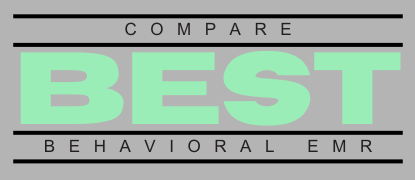As a behavioral health practice owner or clinician, your behavioral health EMR (Electronic Medical Record) system is a significant factor in your daily workflow—impacting everything from patient documentation to billing processes. A well-chosen EMR enhances efficiency, reduces administrative burdens, and improves patient care. However, if your EMR is outdated, overly complicated, or simply not aligned with your practice’s needs, it can quickly turn from an asset to a liability. In this article, we’ll guide you through evaluating your current behavioral health EMR efficiency, identifying signs of inefficiency, and determining if it’s time to explore alternative solutions.
Why EMR Efficiency Matters for Behavioral Health Practices
Behavioral health professionals often manage complex documentation requirements, tight schedules, and sensitive patient data. An EMR that streamlines these tasks can:
- Reduce administrative burnout and clinician frustration
- Improve compliance with regulatory standards
- Increase patient satisfaction through smoother operations and more personalized care
- Enhance revenue cycle management by reducing billing errors and speeding reimbursement
On the other hand, an inefficient EMR can lead to reduced productivity, higher staff turnover, and compromised quality of patient care. Let’s explore some key indicators that your behavioral health EMR might be holding you back.
Key Signs Your Behavioral Health EMR is Hurting Efficiency
1. Excessive Documentation Time
Documentation is critical, but it shouldn’t consume excessive amounts of clinician time. If your staff consistently complains about spending hours after work catching up on notes or documentation often runs over into patient appointment times, your EMR may not be optimized for efficiency. Tools like customizable templates, voice-to-text entry, and intuitive interfaces can significantly reduce documentation burdens.
2. Frequent System Downtime or Slow Performance
Technical reliability is a cornerstone of EMR efficiency. Frequent downtime, slow load times, or regular technical issues disrupt practice workflow and cause frustration among staff and patients alike. If your EMR vendor doesn’t provide prompt support or system performance consistently lags, it’s time to reassess your EMR solution.
3. Poor Integration with Other Systems
Integration capabilities are essential. If your behavioral health EMR doesn’t smoothly integrate with your billing system, CRM, telehealth platforms, or other tools, you’re likely experiencing duplicated work, data entry errors, and inefficient workflows. A robust EMR should seamlessly connect with other systems, enabling smooth operations across your entire practice.
4. Limited Customization and Flexibility
Behavioral health practices vary widely in their processes, patient populations, and treatment approaches. Your EMR should be flexible enough to fit your unique workflows, with customizable dashboards, templates, and reporting options. A rigid system forces your team to adapt inefficient processes, resulting in longer work hours and decreased productivity.
5. Difficulty Meeting Compliance Requirements
Behavioral health practices face strict compliance regulations (like HIPAA and state-specific documentation standards). If your EMR system doesn’t actively support compliance through secure data handling, automated compliance checks, and regular updates aligned with industry regulations, your practice is at greater risk for costly errors and audits. (Learn more about compliance guidelines through this resource from the Substance Abuse and Mental Health Services Administration (SAMHSA).)
Steps to Evaluate Your Current Behavioral Health EMR Efficiency
If you’ve recognized any of these signs in your practice, the next step is to thoroughly assess your current EMR’s performance. Here’s how:
Conduct Staff Surveys and Feedback
Your clinicians and administrative staff can provide invaluable insights into what works—and what doesn’t. Gather structured feedback about documentation processes, ease of use, system reliability, and overall satisfaction.
Review Operational Metrics
Analyze data such as average documentation time per patient, billing cycle length, error rates, and staff overtime hours. Comparing these metrics to industry benchmarks can reveal critical areas for improvement.
Examine Patient Experience and Satisfaction
Patient feedback about wait times, appointment scheduling difficulties, and billing issues can help pinpoint how your EMR is affecting patient care quality and satisfaction.
Seek Professional Consultation
An external expert perspective can be instrumental in objectively assessing your EMR efficiency. Consider leveraging a free practice analysis, where EMR specialists evaluate your practice’s needs and offer personalized recommendations.
Considering Alternatives: When to Switch Your Behavioral Health EMR
Changing EMRs isn’t a decision to take lightly. However, staying with an inefficient system can cost your practice time, money, and morale. If your evaluation indicates significant EMR-related inefficiencies, exploring alternative solutions can lead to substantial improvements. Here are a few considerations when evaluating new EMRs:
- Behavioral Health Specialty Features: Choose an EMR specifically designed for behavioral health practices, offering tailored templates, compliance support, and specialized reporting.
- Cloud-Based Solutions: Cloud-based EMRs offer greater flexibility, scalability, and accessibility. These systems often provide automatic updates and stronger security protocols.
- Integration Capabilities: Ensure your new EMR integrates seamlessly with your existing CRM, billing software, telehealth tools, and other essential practice management systems.
- Vendor Support and Training: Prioritize vendors who offer comprehensive training, responsive customer support, and ongoing resources to maximize efficiency.
Conclusion: Take Action to Improve Your Behavioral Health EMR Efficiency
Your behavioral health EMR should be a powerful tool that streamlines your practice operations—not a barrier to efficiency. By evaluating your current system’s effectiveness and recognizing signs of inefficiency, you can take informed steps toward improving productivity, compliance, and patient satisfaction.
If you’re uncertain about your current EMR’s performance or are considering a transition, start by taking advantage of our free practice analysis. Our experts will assess your practice’s unique needs and guide you toward the EMR solution that’s right for you.
Meta Description:
Learn how to evaluate your behavioral health EMR efficiency, recognize signs of inefficiency, and make informed decisions to improve your practice operations.
